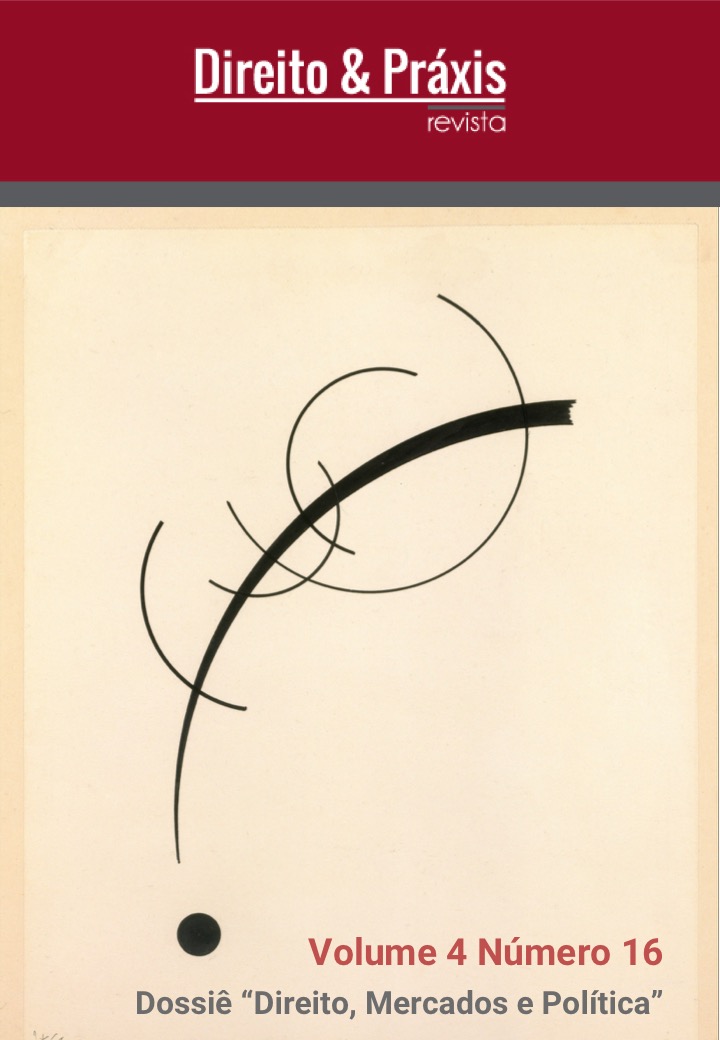Estado de exceção, desobediência civil e desinstituição: por uma leitura democrático-radical do poder constituinte / State of exception, civil disobedience and des-institution: towards a radical-democratic reading of the constituent power
DOI:
https://doi.org/10.12957/dep.2016.19953Palavras-chave:
Desobediência civil, Estado de exceção econômico, poder constituinte, poder desinstituinte, democracia radical / Civil disobedience, permanent state of economic exception, constituent power, dis-instituting power, radical democracyResumo
DOI: 10.12957/dep.2016.19953
Resumo
Neste artigo pretende-se apresentar uma nova leitura da desobediência civil, com o objetivo de assim revelar suas potencialidades para a construção de uma democracia radical. Para tanto, na seção 1 são revisitadas as duas principais tradições – liberalismo político e constitucionalismo – que se dedicaram a pensar a desobediência civil no último século, indicando seus avanços e limitações. Na seção 2 fundamenta-se a hipótese segundo a qual vivemos hoje sob um estado de exceção econômico permanente, razão pela qual os entendimentos convencionais acerca da desobediência civil – que a veem ora como mero mecanismo de pressão política, ora como dispositivo de autocorreção do sistema político-jurídico – se mostram insuficientes diante do quadro paradigmático da pós-democracia. Por fim, após discutir as diferenças entre poder constituinte e poder desinstituinte, afirmando que a desobediência civil se exerce em uma relação na qual ambos estão ativados (seção 3), o trabalho conclui com a indicação das características e formas de ação da desobediência civil entendida enquanto manifestação do poder constituinte/desinstituinte.
Palavras-chave: desobediência civil; Estado de exceção econômico; poder constituinte; poder desinstituinte; democracia radical.
Abstract
In this paper, we intend to present a new reading of the civil disobedience to reveal its potentialities in building a radical democracy. For this purpose, in section 1 the two main traditions dedicated to think civil disobedience in the last century – political liberalism and constitutionalism – are revisited, indicating their advances and limitations. In section 2, the hypothesis that, nowadays, we live in a permanent economic state of exception is grounded, which is why the conventional understandings regarding civil disobedience – which see it either as a mere political pressure mechanism or as a self-correcting device of the political and legal system – are insufficient before the paradigmatic framework of post-democracy. At last, after discussing the differences between constituent power and dis-instituting power, stating that civil disobedience is exercised in a relationship in which both are activated (section 3), the article concludes with an indication of the features and forms of civil disobedience’s action, which is understood as a manifestation of the constituent/dis-instituting power.
Keywords: civil disobedience; permanent state of economic exception; constituent power; dis-instituting power; radical democracy.
Downloads
Downloads
Publicado
Como Citar
Edição
Seção
Licença
Os textos são de exclusiva responsabilidade de seus autores.
É permitida a reprodução total ou parcial dos artigos da Revista Direito e Práxis, desde que citada a fonte.
Este trabalho está licenciado sob uma Licença Creative Commons 4.0, Atribuição-Sem Derivações.
Esta licença permite copiar e redistribuir o material em qualquer suporte ou format para qualquer fim, mesmo que comercial, desde de que citada a autoria original.
This work is licensed under a Creative Commons Attribution 4.0 International License.




